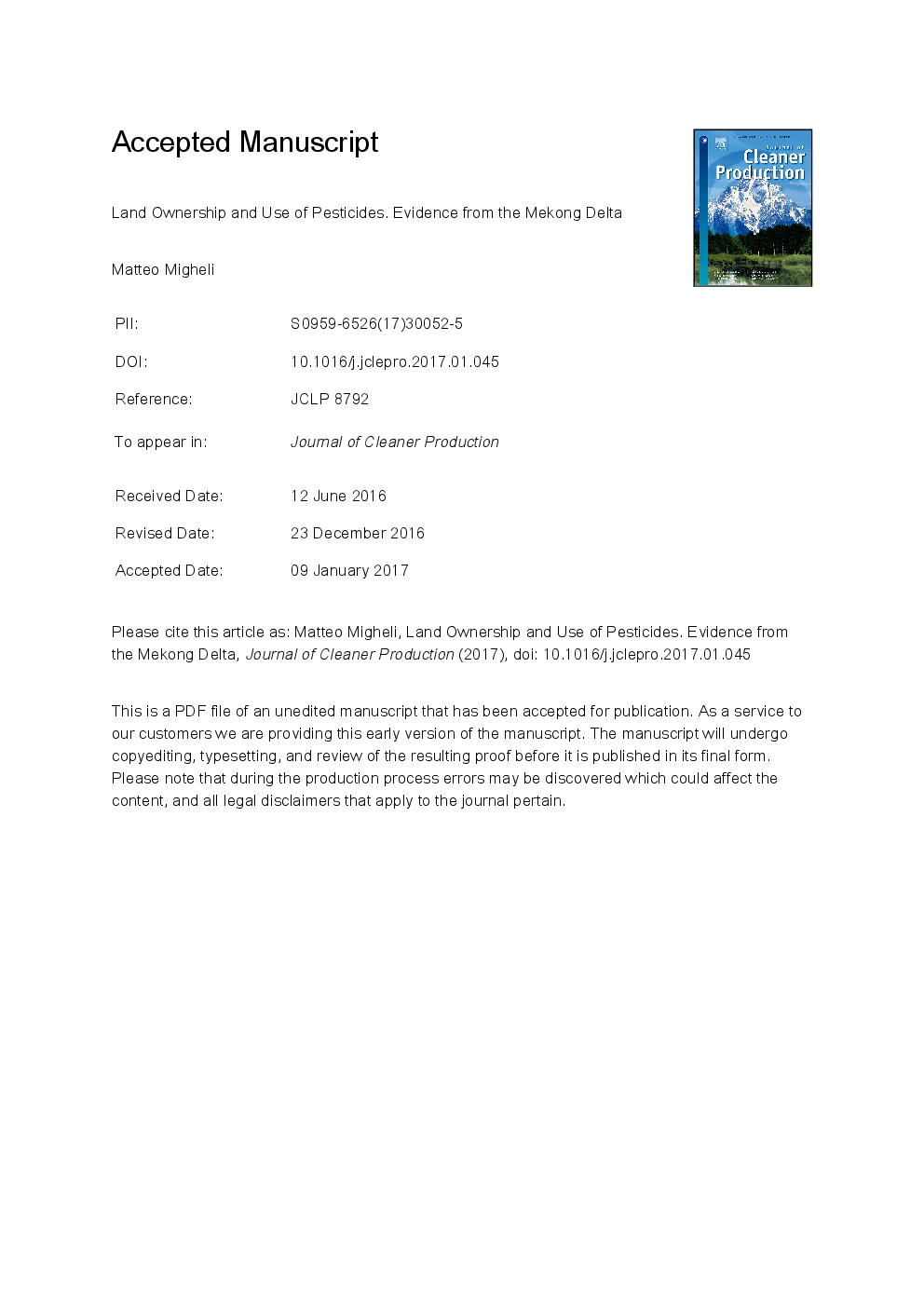ترجمه فارسی عنوان مقاله
مالکیت زمین و استفاده از آفت کش ها. شواهد از دلتای مکونگ
عنوان انگلیسی
Land ownership and use of pesticides. Evidence from the Mekong Delta
| کد مقاله | سال انتشار | تعداد صفحات مقاله انگلیسی |
|---|---|---|
| 147548 | 2017 | 26 صفحه PDF |
منبع

Publisher : Elsevier - Science Direct (الزویر - ساینس دایرکت)
Journal : Journal of Cleaner Production, Volume 145, 1 March 2017, Pages 188-198
ترجمه کلمات کلیدی
استفاده از آفت کش ها، مالکیت زمین، دلتنگ مکونگ،
کلمات کلیدی انگلیسی
Use of pesticides; Land ownership; Mekong Delta;
ترجمه چکیده
استفاده گسترده از آفت کش ها یکی از مشکلات عمده زیست محیطی در کشورهای در حال توسعه است. من رابطه مالکیت زمین و استفاده از آفت کش ها را در دلتای مکونگ بررسی می کنم. صاحبان زمین ممکن است از آفت کش ها کمتر یا کمتر استفاده کنند. در واقع، آفت کش ها در کوتاهمدت بهره وری زمین را افزایش می دهند، در حالی که در بلند مدت آن را کاهش می دهد. بدین ترتیب صاحبان زمین، درآمد فوری و آینده را کنار میگذارند که شامل ارزش زمین است که به بهره وری آن بستگی دارد. بر خلاف ادبیات موجود، این مقاله مالکیت مالکیت زمین را در نظر نمی گیرد، بلکه سهم کل زمین های کشت شده توسط خانواده که مالک آن خانواده است. با استفاده از داده های بانک جهانی که شامل 603 خانوار کشاورزان در دلتای مکونگ است، این مقاله نشان می دهد که به دلیل افزایش سهم زمین های کشت شده، مقدار آفت کش ها مورد استفاده قرار می گیرد. توصیه های سیاست ممکن است حاصل شود: دولت های کشورهای در حال توسعه باید تلاش های خود را برای حساس کردن و آموزش صاحبان مزارع کوچک به منظور درست استفاده از مواد شیمیایی کشاورزی تقویت کنند.

